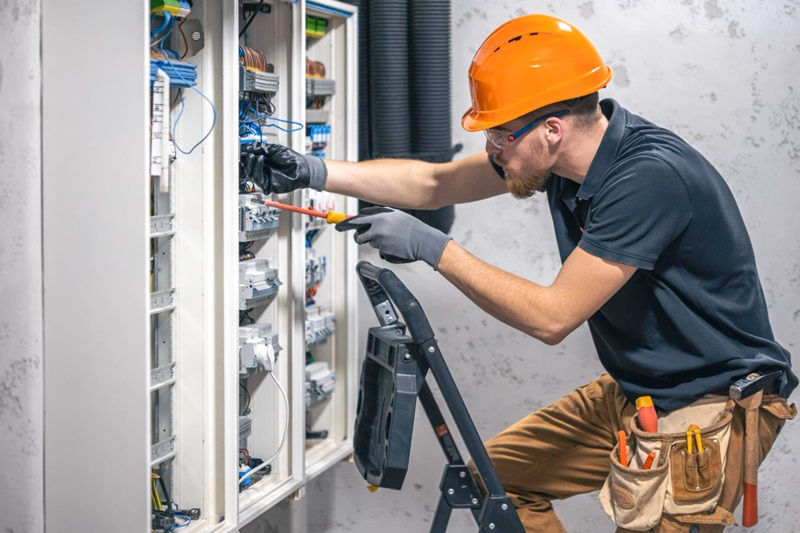DIY Electrical Repairs: Your Comprehensive Guide to Safety Tips and Tricks
- Molly Crowe
- Feb 6, 2025
- 3 min read
Updated: Nov 22, 2025
Have you ever found yourself gazing at faulty wiring, a blown fuse, or a flickering light and pondered whether you could tackle the problem on your own? DIY home improvement projects can deliver substantial cost savings and offer the satisfaction of a successful job. However, when it comes to electrical repairs, the rules of the game change significantly.
Why? Well, messing with electricity, given its inherently dangerous nature, requires a meticulous understanding of safety procedures and extensive know-how. But don't fret! Let's delve into the realms of DIY electrical work and learn how you can safely and effectively manage your home's electrical upgrades, all while keeping your safety a top priority.

This comprehensive guide will disclose the dos and don'ts of DIY electrical repairs, highlight the essential safety tips, and share handy tricks to ensure the best results. No more wondering what to do when a socket stops working or a light switch suddenly becomes irresponsive!
Say hello to a confident and safer electrical DIY enthusiast in you!
Understanding Electrical Safety (Why it matters)
First things first, understanding the importance of electrical safety is paramount when tackling DIY electrical repairs in Melbourne. Faulty wiring, for instance, can lead to disastrous consequences such as electric shocks, house fires, or even fatalities in extreme cases. A thorough comprehension of electrical circuits, familiarising oneself with colour codings, and knowing when to and when not to cross wires can be a real lifesaver.
Additionally, knowledge about state or local regulations about DIY electrical work is vital. While some areas allow homeowners to do minor electrical tasks, many require a licensed electrician to perform electrical works, especially the complex ones. Ignorance of such laws can lead to legal complications, making our DIY project a costly affair.
Necessary Tools for DIY Electrical Repair (What you need)
Armed with the right tools, you can confidently handle most basic electrical DIY tasks. Apart from a reputable voltage tester, a set of insulated hand tools such as wire strippers, needle-nose pliers, and screwdrivers are essential. Each tool has a specific role and ensures your safety while performing the repair.
Moreover, it's wise to invest in rubber safety gloves and safety glasses for personal protection. A fire extinguisher and a first aid kit within reach can also be your best allies in a worst-case scenario.
When to DIY and When to Call a Professional (When should you DIY)
Deciphering between situations one can handle and when it's time to call in the professionals is crucial. While replacing a socket, installing a ceiling fan, or fixing a simple light circuit might be doable tasks, dealing with the main electrical panel, rewiring your home, or handling high voltage appliances should always be left to licensed electricians.
Safety Precautions During DIY Electrical Repairs (How to DIY Safely)
Taking safety precautions seriously may mean the difference between a successful repair and an accident. Start by switching off power from the main circuit and use a voltage tester to ensure no current passes through the wires. Always wear protective gear and use insulated tools. Lastly, never perform electrical work in a damp or wet environment, as water is a good conductor of electricity.
The Pros and Cons of DIY Electrical Repairs (The Good and The Bad)
DIY electrical work can save on costs, provide a sense of achievement, and give an in-depth knowledge of your home's electrical system. However, it came with risks of personal injury, potential property damage, and the possibility of not fully resolving the issue or making it worse.

Conclusion
DIY electrical repairs can seem daunting and for good reason. The stakes are high and risks are real. But being armed with the right knowledge, tools, and a cautious approach allows you to handle minor electrical repairs confidently and safely. Remember, as a rule of thumb, always prioritize safety. Know when to step back and call in a professional, especially when dealing with complex electrical issues. Navigating the realm of DIY electrical repairs with prudence not only ensures safety but ultimately saves you time and money in the long run.
To know more information about us then you can go through the details below:
Name: Day & Night Electrical
Address: Melbourne 3000 Victoria Australia
Phone Number: 1300 138 332
Email Id: info@daynighttradesolutions.com.au







Comments